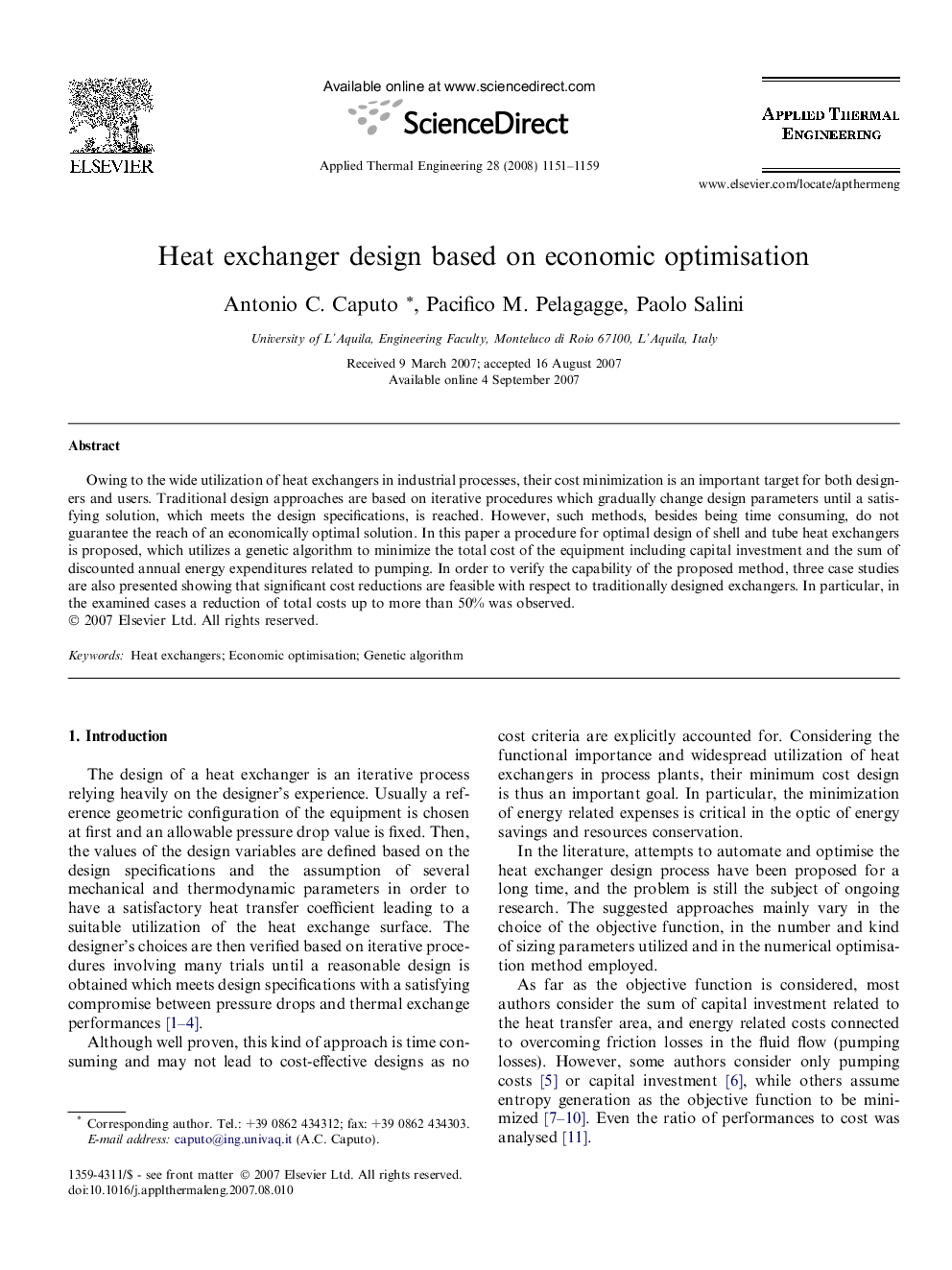| Article ID | Journal | Published Year | Pages | File Type |
|---|---|---|---|---|
| 649058 | Applied Thermal Engineering | 2008 | 9 Pages |
Owing to the wide utilization of heat exchangers in industrial processes, their cost minimization is an important target for both designers and users. Traditional design approaches are based on iterative procedures which gradually change design parameters until a satisfying solution, which meets the design specifications, is reached. However, such methods, besides being time consuming, do not guarantee the reach of an economically optimal solution. In this paper a procedure for optimal design of shell and tube heat exchangers is proposed, which utilizes a genetic algorithm to minimize the total cost of the equipment including capital investment and the sum of discounted annual energy expenditures related to pumping. In order to verify the capability of the proposed method, three case studies are also presented showing that significant cost reductions are feasible with respect to traditionally designed exchangers. In particular, in the examined cases a reduction of total costs up to more than 50% was observed.
